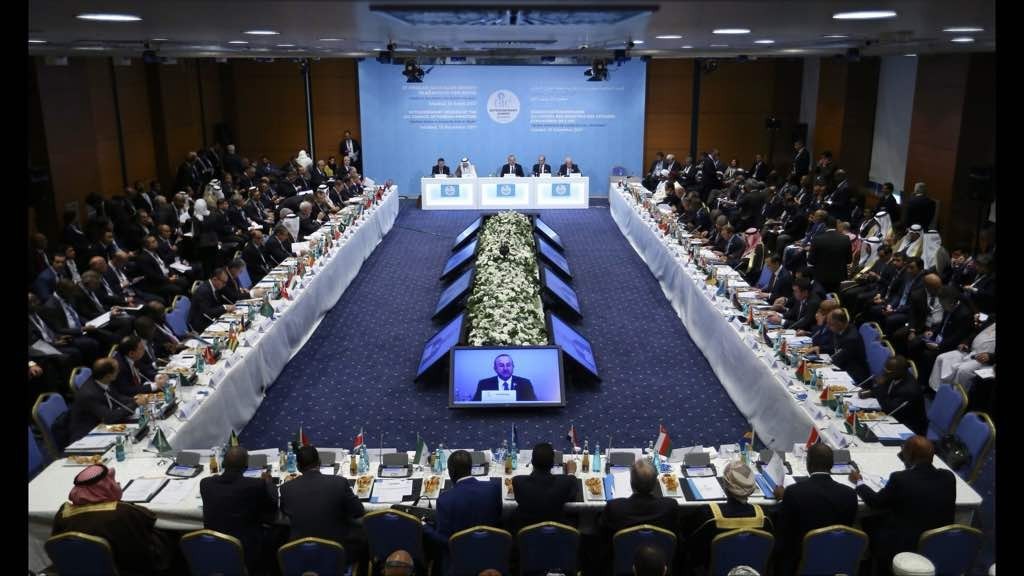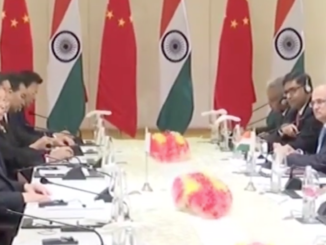In another major blow for the Indian diplomacy over the past few days, the Organization of Islamic Countries (OIC) demonstrated their strong support to Pakistan over Kashmir. Expressing grave concern over India’s recent violation of Pakistan’s air space, the OIC has also affirmed Pakistan’s right of self-defense.
This is a significant setback for India in the past few days, which had launched a major diplomatic offensive and was reaching out to various international capitals, including the members of the OIC, to build support against Pakistan in an attempt to what PM Modi had vowed earlier that India would isolate Pakistan on the diplomatic front. The OIC not only came up with strong support but has also urged India to refrain from the threat of use of force against Pakistan, which is an important and the founding member of the organization that mainly consist of the Muslim countries.
Earlier India’s Foreign Minister, while addressing the opening session of the OIC meeting had indirectly criticized its neighbor. Pakistan boycotted the opening session in protest since the invitation to India was extended without the formal consultations and against the rules of business. Pakistan’s Foreign Minister Qureshi, who was supposed to represent his country at the forum boycotted in protest due to India’s recent military aggression against Pakistan.
According to the Press Release issued by Pakistan’s Ministry of Foreign Affairs at the conclusion of the OIC Ministerial meeting in Abu Dhabi, the OIC has ‘reaffirmed its unwavering support for the Kashmiri people in their just cause.’ Rejecting India’s stance, the resolution adopted at the 46th session of the Council of Foreign Ministers (CFM) has also reiterated that ‘Jammu and Kashmir remains the core dispute between Pakistan and India and its resolution is indispensable for the dream for peace in South Asia.’
Condemning the recent wave of Indian terrorism in Occupied Jammu and Kashmir, the OIC resolution has expressed deep concern over the atrocities and human rights violations in the Indian Occupied Kashmir (IoC). The reference to the disputed territory as the ‘occupied territory,’ is significant, and is likely to create considerable discomfort within India, which has always claimed Kashmir to be its integral part.
The OIC resolution has also emphasized upon the international community reminding of its ‘obligation to ensure implementation of UN Security Council resolutions on the Jammu and Kashmir dispute.’ India does not consider these resolutions relevant anymore and has rejected all previous efforts to negotiate the issue bilaterally with Pakistan.
Taking a firm stance over recent military clashes in South Asia, the OIC members have rejected the justifications provided by India for launching surgical strikes across the Line of Control (LoC). In this regard, the OIC members adopted a new resolution, sponsored by Pakistan, which ‘expressed grave concern over the Indian violation of Pakistani air space.’ In another major snub to India, the OIC member states have affirmed Pakistan’s right to self-defence; and have urged India to refrain from the threat of use of force against one of the founding members of the OIC.
The OIC meeting has appreciated Prime Minister Imran Khan’s offer of dialogue to India and the goodwill gesture of handing over the Indian pilot, who was shot down by Pakistan Air Force on Feb 27, 2019, during an aerial encounter over Pakistan’s territory. OIC members have urged both India and Pakistan for ‘restraint and de-escalation as well as the need to resolve outstanding issues through peaceful means.’
In another key development, the OIC members have also unanimously elected Pakistan as the member of its Independent Permanent Human Rights Commission from the Asian region, which is an acknowledgement of Pakistan’s constructive contribution to human rights discourse, norms, and policies.
The OIC is an important international forum that comprises of 57 countries and is the second largest body after the United Nations. It was created to bring all Muslim countries at one platform and to safeguard the interests of the Muslim world. India, despite hosting a significant number of Muslims, has not been able to get membership of the OIC but is looking forward to playing a more active role to enhance its influence amongst the Muslim world.
The OIC Charter that was adopted in 1972 had laid down the objectives and principles of the organization, which included efforts to strengthen the solidarity and cooperation among the member states. India’s acceptance in the OIC even as an observer is likely to weaken this fundamental principle because of Pakistan’s principle-based objection, due to India’s track record of gross human rights violations against the Muslim Kashmiris over the last 70 years.
At present, the OIC has only five states as Observers, including Bosnia, Herzegovina, Central African Republic, Kingdom of Thailand, Russian Federation and Turkish Cypriot. OIC also works very closely with the international organizations, including the United Nations which was granted Observer status in 1976. This helps the OIC to synchronize its activities with the will of the rest of the international community, especially on the humanitarian issues.
OIC’s collective stance at the recent CFM meeting on the ongoing humanitarian violations being instigated by India in the Muslim majority areas of Indian occupied Kashmir is likely to gain more resonance at the United Nations. It would be useful that the two international organizations develop a common modality to address this long overdue issue and help resolve the Kashmir issue between India and Pakistan.
The recent developments, especially the outcome of the OIC meeting is likely to perturb the Indian leadership that had launched a major campaign to discredit Pakistan on all international fora. India’s failure to provide tangible justification for its recent military aggression seems to have backfired. Indian leadership appears to be in a problematic situation – both at the domestic front as well as at the international level.
Despite boycotting the OIC meeting – a position that was earlier criticized by some, Pakistan seems to have emerged victorious at the diplomatic front. India’s growing isolation on the Kashmir issue may eventually force its leadership to move towards a dialogue process, which is the only path towards normalization of relations between the two regional adversaries.
Photo Credit: Organisation of Islamic Cooperation Photos
![]()





Be the first to comment